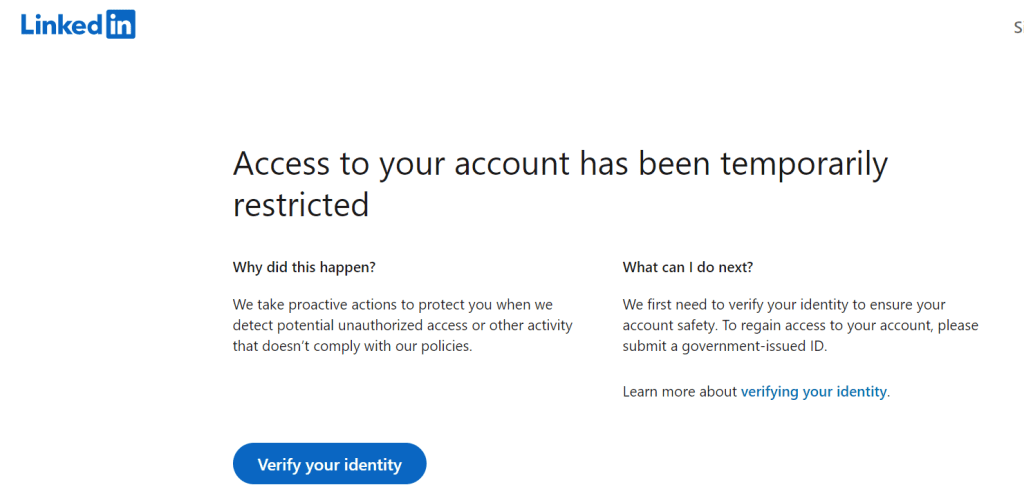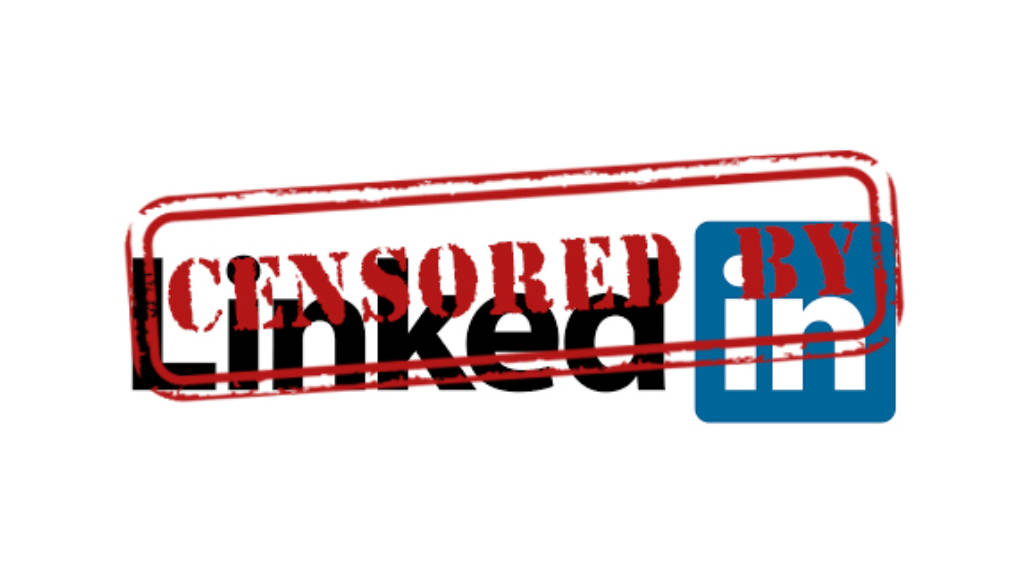Amid the furore concerning the United States sanctioning the Russian media platform RT, other tactics are also being used by US media and content outlets to supress free speech. One of these has directly affected Russia’s Pivot to Asia, whose embryonic Linked In account has abruptly been suspended within 24 hours of it being set up.
That Linked In site had just four articles posted on it, being Russia To Build Lithium Carbonate Plant In Bolivia, Russian Banks Instructed To Permit Client Use of Digital Rubles From July 1, 2025, International Monetary Fund Returns To Russia, Will Provide Economic Health Report, and Russia-Turkmenistan Bilateral Trade Up 73% In H1 2024.
Following these articles, the account has been suspended with requests to provide a personal telephone number, and more worrying, a legally verified copy of our ID. This request is shown below:

Linked In state that this is ‘a proactive measure to protect you’ and then request personal details. That’s not ‘protective’ – that’s surveillance.
We have been made aware of other personnel facing problems with Linked In. One of our contributors is a well-known figure in Asia, and had a 15-year old Linked In profile with thousands of contacts. Upon posting an article about making a donation to a Ukrainian refugee charity, and doing so from Moscow, the article exploded with comments. Nearly all slammed the author for making a donation from Russia, claimed it wasn’t enough (it was US$1,000) and generally creating a huge amount of anger. 20,000 views and over 500 comments later that account was suspended for ‘inappropriate use.’ Requests were also sent to verify the persons’ identity with a request for a copy of a legally verified passport. They did, yet the account remained suspended despite the clarifications. So – what happened to their passport details? Who has those and what are the implications? Its unnerving stuff.
That incident altered the perspective of many whose previous opinion had been that US media were reasonably tolerant and that there wasn’t any attempt to coerce. When 20,000 angry Ukrainians descend upon an individual because they made a donation to assist Ukrainian refugees – but from Moscow – you can be sure that this was an organised attempt to intimidate. What was surprising was that this behaviour was seemingly encouraged by Linked In’s own policies.
This type of situation doesn’t gain much traction in Russia itself as Linked In has been blocked in the country. That was because it refused to comply with Russian laws requiring the data of its Russian based members be placed on Russian servers instead of US based ones. That effectively means that the Russian government itself was warning Russian Linked In users that their data was being kept (and potentially scrutinized) by the United States government. But it, as we have seen, Linked In can and does intimidate and silence the overseas Russian or Russian-friendly diaspora.
Meanwhile, RT is just one of multiple Russian-based news organisations that are not just banned in the West, but actively sanctioned. Journalists employed by RT can now be arrested and imprisoned in the West and have their assets confiscated. The US based American veteran Scott Ritter, a critic of the US policy in Ukraine, has had his passport revoked.
Right now, in Russia (and without using a VPN) we can access Western media outlets such as the Financial Times, The Economist, the Washington Post, The Atlantic, and many others. It may come as a surprise, but real freedom of the press is more noticeable in Russia than in the West.
At present, Russian ballet, opera, music and the arts in general are also subjected to censorship in the West. Performances are cancelled, musicians and even ballet dancers are told they are unwelcome. In Kiev, playing Tchaikovsky, or reading Pushkin in public can get you fined, jailed and beaten up. This month, at the Mariinsky theatre in St.Petersburg, the programme over the next two weeks includes works by Bach, Britten, Elgar, Donizetti, Liszt, Massenet, Mendelssohn, Mozart, Rossini, Schumann, Schubert, Straus, Verdi, Vivaldi, and Wagner.
When one side to a conflict begins to impose censorship, and the other doesn’t, that gives some pointers as to which one of the opposing partners is really committed to freedoms, and which is masquerading in saying they are upholding democratic values, but in reality, are stealthily taking them away. Linked In’s behaviour is just one example.
US-Russia Media Impact On Donald Trump
Meanwhile, as concerns the latest news about the attempted, second assassination attempt on Donald Trump, it appears that the US government has not only been censoring content, it has wound up their media so much about Ukraine that American citizens are prepared to commit murder against fellow Americans (even a President!!!) in following the narrative. Clearly its a sign that US media manipulation and the aggressive messages within this anti-Russia, pro-Ukraine campaign have gone way too far. It’s driving ordinary American people to commit insane, highly criminal acts.

 Русский
Русский













